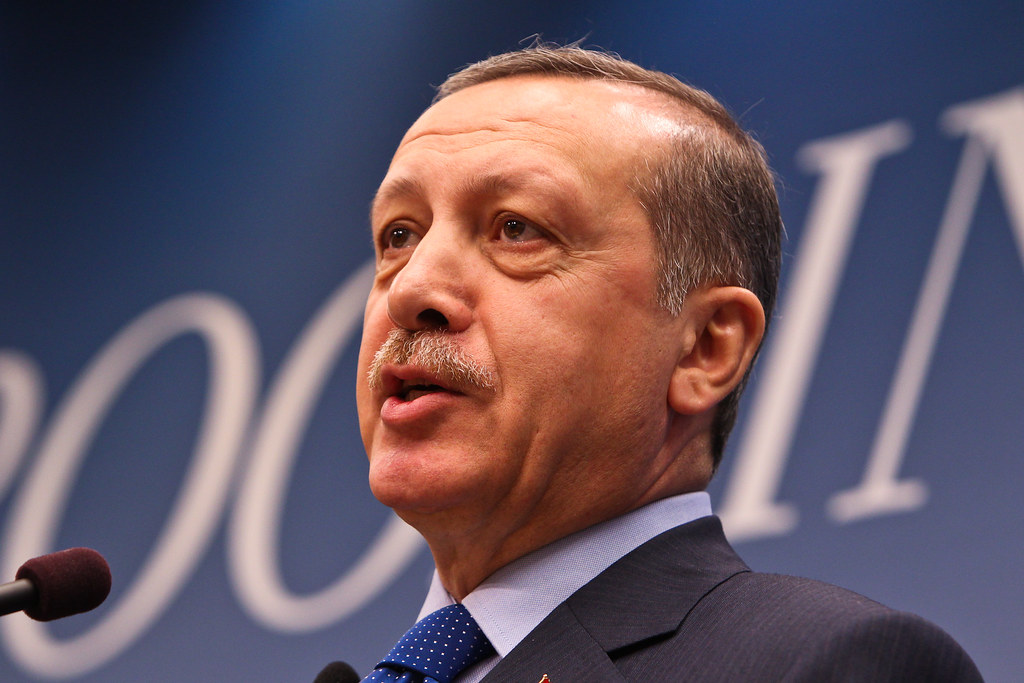
On November 21st, in response to a rocket attack on a Turkish town on the country’s border with Syria, President Erdoğan of Turkey threatened to launch a ground offensive against the Kurdish populations of North-eastern Syria, whom he blamed for the attack. Whilst this is not the first time Erdoğan has made serious threats against Syria’s Kurdish population, a barrage of airstrikes by Syrian forces across border towns have raised serious concerns about a potential ground assault, but just what would such an assault mean for the Syrian people and global stability?
To answer this question, we need to explore the history of Turkey’s conflict with the Syrian Kurds. Since the age of the late Ottoman Empire, Turkey has been involved in various conflicts with the many Kurdish populations in the Middle East. In Turkey itself, the past century has seen the government attempt to suppress many Kurdish independence and autonomy movements that threaten the country’s political stability. More recently, and especially since the recent Syrian War, Erdoğan’s Government has begun to perceive the autonomous majority-Kurdish province in Northeastern Syria, known as Rojava, as a great geopolitical threat. Erdogan views the Syrian Democratic Forces (SDF) who control the region as nothing more than terrorists, due to supposed links between them and the PKK, a Kurdish militia movement in Turkey that both the US and Turkey define as a terrorist organisation.
Whilst Erdoğan’s current offensive stance has been linked by some to his poor poll ratings with an election scheduled next year, the wider geopolitical context must not be ignored. The US, for its part, has historically had an important alliance with Syria’s Kurdish population, due to their crucial role in the international mission against the so-called Islamic State. This alliance was tested in October 2019, when President Trump decided to withdraw US troops from the anti-IS operation, thus forcing the SDF to ally with the US’s enemy, the Syrian Central Government under President Assad, in order to protect the region from Turkish assault in the absence of US protection. Whilst, the Biden administration has offered more US ground support for the SDF, this has been coupled with a recent policy of US appeasement with Turkey, as the US has sought to sure up support from NATO allies for the war in Ukraine. Turkey, for its part, remains just one of two NATO countries yet to support the accession of Finland and Sweden into NATO, which Erdoğan puts down to the countries’ alleged support for Kurdish militants.
On the opposite side of the coin, as the US retreats to Turkish demands, Russia seems to be greatly exerting its influence in the region. Recently, Iran has emerged as Russia’s “top military backer” for the War in Ukraine. At this crucial time for the Russian military, the country’s alliance for the Iranian-backed regime of Bashar al-Assad has arguably become more crucial than ever, with the regime having the potential to greatly destabilise the US’s presence in the region. At the same time, Erdogan’s air strikes in Northern Syria, some of which have taken place within hundreds of metres of US troops, have offered Russia a new opening to destabilise NATO unity, by increasing cooperation with Turkey. Recent reports have suggested attempts by Russia to negotiate increased cooperation between Assad and Erdoğan. Such a settlement would leave Kurdish Syria vulnerable to an attack from both sides, exposing Rojava to a potential massacre.
In the midst of this worrying possibility, it is important to explore what the consequences of a Turkish ground incursion could be for the population of Rojava and the world. Many in Syria have already raised fears about ethnic cleansing, with many of the people at risk themselves survivors of previous attempts at ethnic cleansing by Daesh. It is easy to forget the crucial role Syria’s Kurdish and other ethnic minority populations played in the fight against the organisation’s expansion in Syria – tens of thousands of Syrian fighters were killed in the fight, which still rages on to this day. Likewise, today, around 60,000 Daesh convicts remain in Kurdish-controlled prisons in North-eastern Syria, including up to 5,000 foreign fighters that other countries are still yet to take responsibility for. The risk that conflicts pose to such prisons was demonstrated perfectly by the militant attack on al-Sina prison in January 2021, where 140 SDF members lost their lives. Likewise, whilst Erodğan has pledged that, in the event of a ground offensive, Turkey could take custody of such prisons, their commitment to fight jihadist terrorism has been questioned by many, with Erdogan rejecting Obama’s pleas to help defend Kurdish-dominated Kobane during Daesh’s advance in 2014.
The overwhelming evidence clearly indicates that any attempt by Erdogan to launch a ground offensive in the Kurdish-controlled region of Syria could be potentially catastrophic, not just for the communities that call this place home, but also to the wider global community. Syria’s Kurdish populations still play a hugely important role to this day in the right against jihadist terrorism. Any large-scale conflict between the SDF and Erdogan’s forces therefore risks the re-emerging of such terrorism on a massive scale. It is now therefore more important than ever that the US and other NATO allies pressure against Erdogan engendering such a catastrophe.



Average Rating